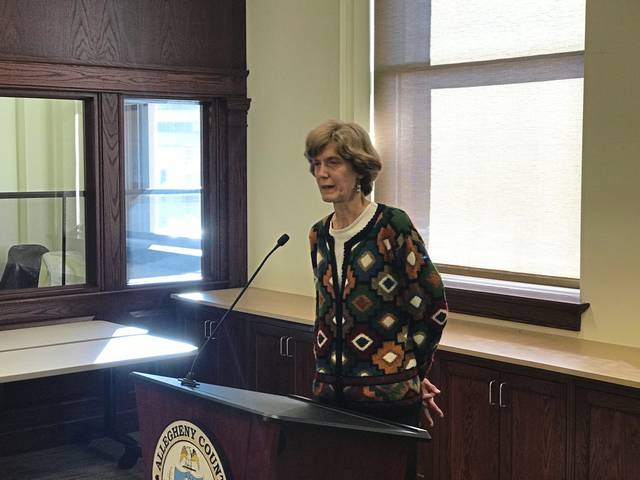Tuberculosis case at Pittsburgh school isn't cause for panic, health department says
A confirmed case of tuberculosis at Arsenal 6-8 school in Pittsburgh’s Lawrenceville neighborhood doesn’t pose a risk of the disease spreading through the community, health officials said Wednesday
“There is absolutely no reason for the general public or the parents at the school to worry,” said Dr. Kristen Mertz, an epidemiologist with the Allegheny County Health Department. “ This is not an emergency. People should not go running to the emergency department to get tested.”
The department declined to provide specific details about the case in Lawrenceville, but said the school is identifying a small number of students and staff who may have been exposed so they can be tested. Health department officials confirmed the case to the public on Tuesday.
“The risk of contracting tuberculosis in Allegheny County is very low,” Mertz said.
Although common worldwide — about 2.4 billion people are infected with the bacteria — the disease is now rare in the United States and in Allegheny County, Mertz said.
The reasons for the decline of the disease in the U.S. aren’t known, but tuberculosis tests aren’t performed on children or health care professionals because of its rarity. Infants also are not vaccinated against TB in the U.S., Mertz said.
She said most tuberculosis cases are latent — meaning a person has been infected with the bacteria but doesn’t exhibit symptoms of the disease.
About 20 tuberculosis cases are reported in Allegheny County each year, she said.
The only way to contract the disease is through prolonged direct contact with someone who has tuberculosis and being exposed to bodily fluids from their coughs and sneezes, Mertz said.
It is not transmitted through surfaces or other indirect contact, Mertz said, meaning the chance for someone to contract the disease at a place like a school is low.
“Most people in a school environment are not at risk,” Mertz said. “We’re testing a small number of students only out of an abundance of caution.”
People with tuberculosis have a cough that lasts for more than three weeks and could include coughing up blood, Mertz said. Other symptoms include fever, chills, night sweats and weight loss, she said.
The disease is treated using antibiotics for between six and nine months. A person becomes noninfectious within days of treatment, according to the health department.
People with questions can call the health department at 412-687-2243.
Tom Davidson is a TribLive news editor. He has been a journalist in Western Pennsylvania for more than 25 years. He can be reached at tdavidson@triblive.com.
Remove the ads from your TribLIVE reading experience but still support the journalists who create the content with TribLIVE Ad-Free.

